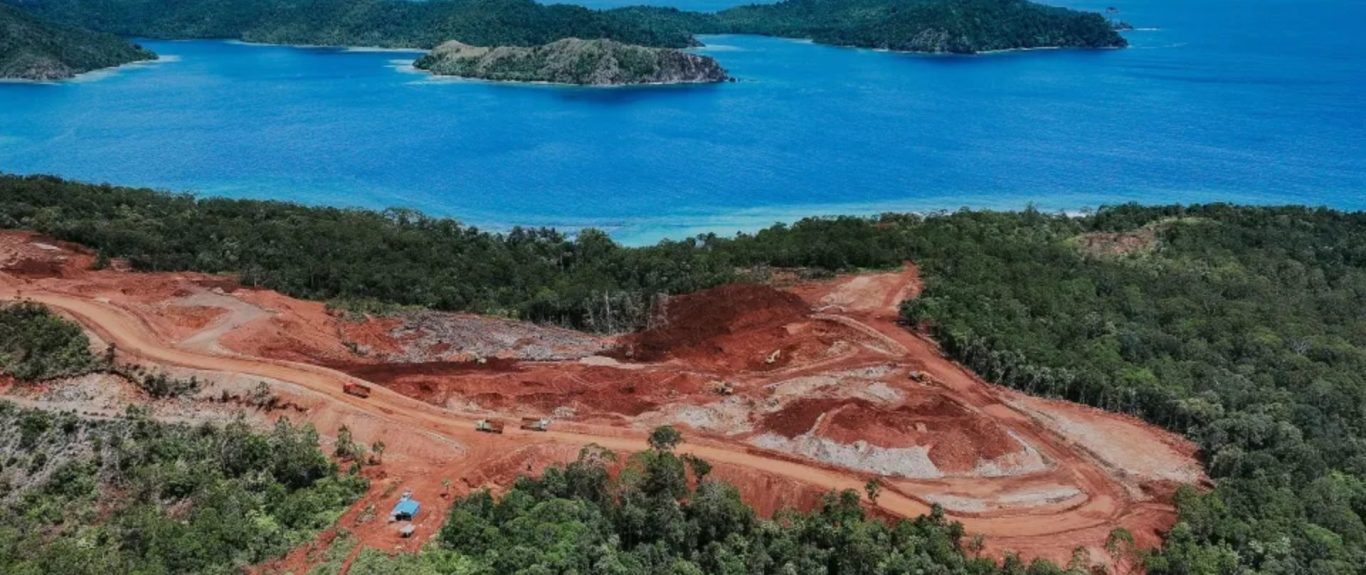Nickel's Pivotal Role in Enhancing Indonesia's Growth Faces New Challenges
Indonesia is aggressively pursuing ambitious economic growth, targeting between 5.2 and 5.8% by 2026 and an even more ambitious 8% by 2029, representing a significant landscape of opportunity. This vision is heavily reliant on a burgeoning manufacturing sector, particularly in resource processing, positioned as a primary engine for national prosperity despite recent economic shifts. For companies poised to leverage Indonesia's vast natural resources, understanding the dynamics of this growth strategy is paramount.
A cornerstone of this national ambition is the strategic development of high-value manufacturing, notably highlighted by the EV battery production planned by Chinese giant CATL, slated to commence by March 2026. This substantial foreign direct investment directly taps into Indonesia's abundant nickel resources, aligning perfectly with its emerging green economy goals. Coupled with strong domestic consumer demand, and evidenced by healthy vehicle sales, these factors create a compelling market environment that encourages further investment and expansion in the automotive and related industries, presenting lucrative prospects for businesses.
However, this resource-driven growth is encountering friction, particularly concerning the role played by nickel, and posing crucial considerations for business leadership. The recent controversy surrounding Gag Island in Raja Ampat serves as a critical case study: nickel mining operations there have ignited public outrage and exposed a stark governmental division. Conflicting signals from the Energy Ministry (initially dismissing damage) and the Environment Ministry (suspending operations due to serious environmental damage and legal violations) underscore regulatory unpredictability. For companies, this highlights the importance of due diligence, environmental compliance, and an awareness of varying government agency stances, which can directly impact operational certainty and social license to operate.
In a firm move for environmental protection in Raja Ampat, Prabowo Subianto has ordered the cancellation of four nickel mining permits, including one held by the state-owned subsidiary Gag Nikel. This significant decision stemmed from documented environmental damage and violations of the Law on Management of Coastal Areas and Small Islands, which restricts mining on ecologically sensitive small islands. Such a decisive intervention from the nation's highest leadership underscores that environmental non-compliance carries severe regulatory, reputational, and political risk, potentially leading to direct and impactful government actions.
This extensive national push for nickel downstreaming, highlighted by significant investment by companies like PT Vale Indonesia Tbk (INCO) in new mines, as well as the billions of dollars being invested in EV battery production, is intensifying environmental scrutiny across the archipelago.
While these strategic initiatives aim to maximize resource value and position Indonesia as a global EV supply chain leader, they also amplify the need for businesses to implement world-class Environmental, Social, and Governance (ESG) frameworks. The public and inter-ministerial conflicts in Raja Ampat signal that environmental compliance is not a regulatory hurdle but an element of long-term business viability and reputation.
The ramifications for business leaders are far-reaching. Regulatory uncertainty stemming from governmental discord risks deterring crucial foreign direct investment, potentially undermining project timelines and financial viability in essential new growth industries. Furthermore, unaddressed environmental impacts, particularly in globally recognized biodiversity hotspots, could lead to increased scrutiny from international markets and consumers, potentially impacting export market access and compromising corporate "green" credentials. Businesses must recognize that the effective navigation of these environmental conflicts and inconsistent policy enforcement will be critical for securing investment, maintaining market competitiveness, and ultimately shaping Indonesia's long-term position as a reliable and sustainable player in the global nickel and EV supply chain.
Sources:
- "Raja Ampat Terancam Hancur Oleh Tambang Nikel, Bahlil Bakal Panggil Pemilik IUP." Dunia-Energi.com. https://www.dunia-energi.com/raja-ampat-terancam-hancur-oleh-tambang-nikel-bahlil-bakal-panggil-pemilik-iup/
- "Prabowo Resmi Titahkan Cabut 4 Izin Tambang Nikel di Raja Ampat." Bloomberg Technoz, May 29, 2025. https://www.bloombergtechnoz.com/detail-news/73602/prabowo-resmi-titahkan-cabut-4-izin-tambang-nikel-di-raja-ampat
- "Govt split over Raja Ampat mining concessions." The Jakarta Post, June 9, 2025. https://www.thejakartapost.com/indonesia/2025/06/09/govt-split-over-raja-ampat-mining-concessions.html
- "Energy ministry temporarily halts nickel mining operations in Raja Ampat." The Jakarta Post, June 6, 2025. https://www.thejakartapost.com/business/2025/06/06/energy-ministry-temporarily-halts-nickel-mining-operations-in-raja-ampat.html
- "Bahlil Hentikan Operasional Tambang Nikel Milik Anak Usaha Antam di Raja Ampat." Katadata, June 5, 2025. https://katadata.co.id/berita/energi/68415fea87040/bahlil-hentikan-operasional-tambang-nikel-milik-anak-usaha-antam-di-raja-ampat
- "Vale Indonesia to Develop Nickel Mining in Bahadopi, Central Sulawesi." Tempo Online, June 3, 2025. https://en.tempo.co/read/2013636/vale-indonesia-to-develop-nickel-mining-in-bahadopi-central-sulawesi
- "Energy Minister to Evaluate Nickel Mines in Raja Ampat." Tempo Online, June 4, 2025. https://en.tempo.co/read/2013974/energy-minister-to-evaluate-nickel-mines-in-raja-ampat

MINING
June 10, 2025
